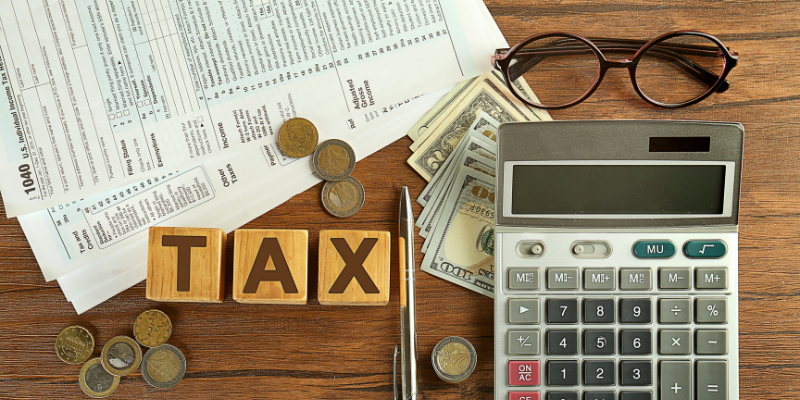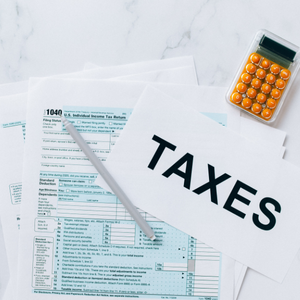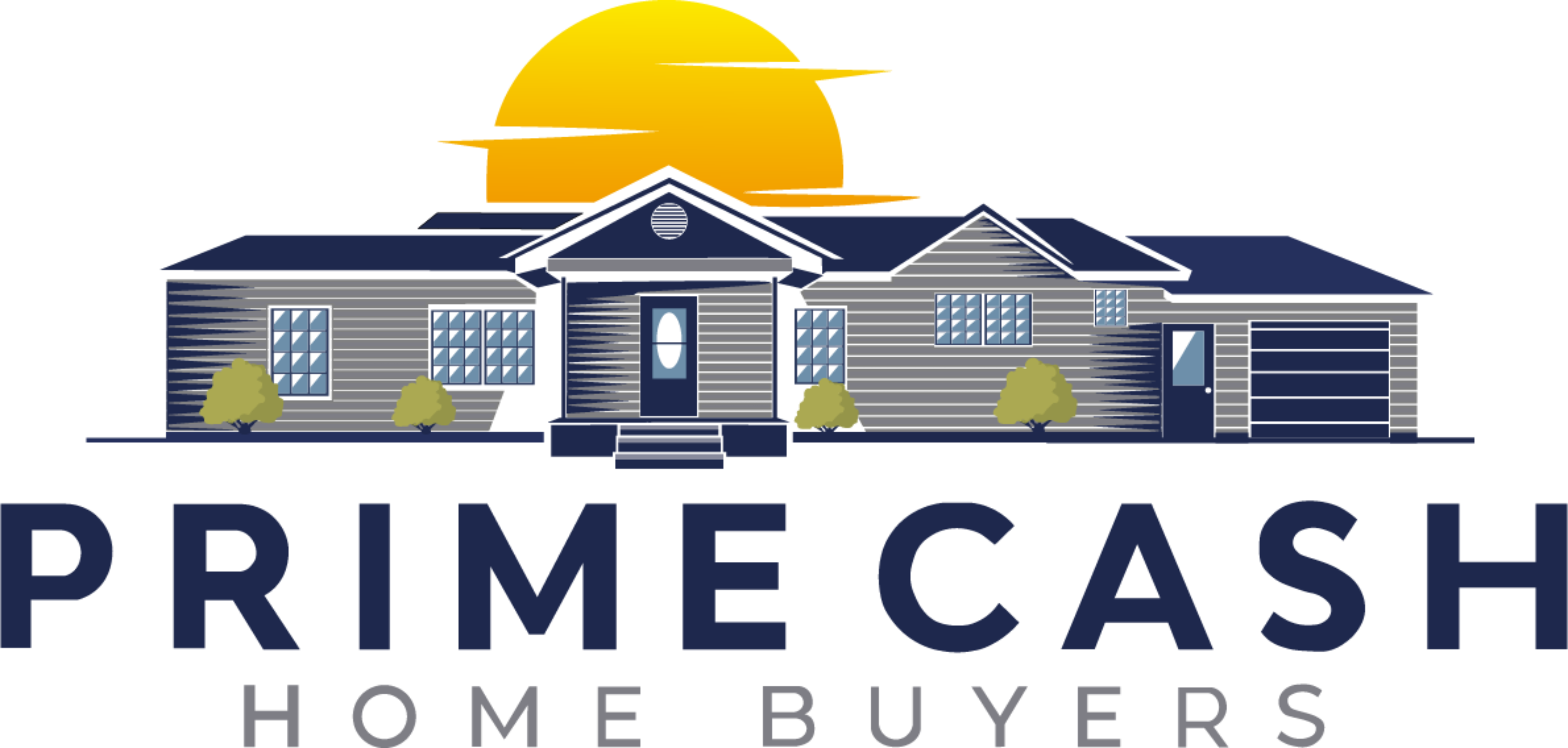
Understanding Capital Gains Tax: A Comprehensive Guide
If you’re selling your home in Augusta, Georgia, it’s important to note the impact the capital gains tax will have. The capital gains tax will apply to your sale if the property in question has appreciated in value since the purchase and you are selling it at a higher price, understanding taxation policies will help you structure your finances efficiently.
In real estate, the profit or gain is determined by calculating the selling price, then subtracting the purchase price and any necessary improvements. As a homeowner in Augusta, you may qualify for certain exclusions. For example, if you have occupied the house as a primary residence for two out of five years prior to the sale, you are exempted from $250,000 of profit for single filers or $500,000 for married filers filing jointly.
You are required to maintain a comprehensive record of any relevant and associated expenses to the sale of the home to determine the cost basis and thereby, tax diminishing gains. He will also inform you how IRS obligations demand Georgia tax policies to be followed and help you avoid the common mistake of ignoring guidelines in the region.
Strategically selling the home after understanding the tax policies will significantly increase profitability. Hence, homeowners in Augusta should be made aware of the timing and how to optimally structure their finances. Partnering with Prime Cash Home Buyers, a trusted home buyer in the area, can help ensure you navigate these tax implications effectively and make informed decisions that maximize your return.
Key Factors Affecting Capital Gains on Real Estate Sales
Understanding important elements that impact capital gains tax obligations on selling a home in Augusta, GA, is vital.
Moreover, Augusta’s local market conditions and trends in real estate might impact property value and the gains realized from the sale. Also, the adjusted basis of the property is very important; this is determined from the original purchase price plus any capital improvements made during the time of ownership.
Knowing these factors is important since they determine if you would pay any tax on profit, and if you would pay any tax at all under the federal IRS rules, and how much you might be liable to pay.
How to Calculate Capital Gains When Selling Property

In Augusta, GA, making an accurate calculation of capital gains is important when selling a home, especially when determining tax obligations. Capital gains is the amount earned from selling the home of rules and howforgreater value than the purchase price.
To determine this, begin by looking into the property’s adjusted cost basis. It comprises the purchase price, any capital improvements, and depreciation claimed. After determining the adjusted basis, capital gains can be calculated by the selling price of the home minus the adjusted basis.
Apart from federal tax, state tax is also applicable, and hence, both Augusta and the rest of Georgia must comply with these criteria.
In the case that the home is partially or fully claimed as an investment or rental, further calculations will be required for depreciation recapture. Furthermore, real estate laws and Augusta tax codes are subject to change, and hence, a tax advisor must be consulted.
Essential Tips for Reporting Capital Gains on Your Tax Return
If you are planning to sell your home in Augusta, Georgia, you should know how the taxes, especially capital gains, will affect your yearly tax return. Capital gains are the revenue generated when you sell an asset at a higher price than the amount you purchased it for.
When evaluating your home for tax adjustments, you need to count the adjusted cost basis, which is the purchase price of the home in addition to substantial renovations, if any, that were done.
If the IRS decides to audit your claim, you will need to supply them with the paperwork, so be sure to keep all the receipts of the transactions relating to your home, as well as all the renovations done to the house. Also, a tax expert that operates in Georgia may be useful in ensuring that you are following all the rules set for federal laws as well as the specific laws for the state of Georgia.
Knowing these specific factors will increase efficiency when dealing with the capital gains on taxes while selling a house in Augusta.
State-specific Tax Considerations for Real Estate Transactions
It is important to note the taxes that come with the sale of a home in Augusta, Georgia, such as a transfer tax, which is applied to the sale of the house and calculated based on the selling price.
When considering Capital Gains Tax After Selling a Home, there is also a capital gains tax that a seller needs to be concerned with, both on a federal and state level.
In Georgia, if a resident of Augusta has lived in their home for a minimum of two years in the last five years, they may qualify for a capital gains tax exclusion, which lessens the burden of the tax. Additionally, before transferring ownership, any local property taxes due should be settled.
There are various taxes associated with real estate transactions in Augusta, so it is advisable to seek guidance from a real estate attorney or tax professional familiar with Georgia regulations.
The Impact of Capital Improvements on Your Home’s Sale Price
Understanding how capital improvements affect the selling price of your home in Augusta, GA, as well as your tax obligations, is critical. Capital improvements refer to the renovations or additions that increase the value of your property, such as a kitchen remodel, a bathroom addition, or the installation of energy-efficient windows.
These improvements indeed make your home more appealing to prospective buyers, and they significantly increase its market value, which is a critical consideration. From the standpoint of capital gains tax, the expenses for these improvements can be included in the purchase price of the house, which would lower the taxable gain.
Therefore, an owner who makes substantial improvements and then sells the property may actually end up paying less tax on the profit from the sale of the property. For accurate assessment of the sale price and tax computations, it’s critical to maintain all purchase documentation relating to capital improvements.
Adequate knowledge of these nuances allows homeowners to maximize profit on the sale of property while complying with IRS regulations on properties in Georgia.
Navigating the IRS Guidelines for Home Sale Exclusions
While selling your home in Augusta, GA, it is important to grasp the relevant IRS rules concerning the exclusion of some profits from your home sale, particularly for tax purposes.
In order to be eligible for this exclusion, you must have both owned the home and lived in it as your primary residence for two of the five years prior to the sale. Moreover, some caveat regulations may be applicable in case of selling due to some unavoidable and unforeseen events.
For tax purposes, the IRS allows you to deduct selling expenses, improvements, and purchase price, which are at times contentious and disputed. It is vital for taxpayers to be familiar with Augusta and Georgia tax regulations so as to utilize the IRS guidelines efficiently and at the same time protect themselves from state and federal tax law violations.
How Primary Residence Status Influences Taxes on Home Sales
For residents of Augusta, GA, understanding the primary residence tax implications is critical when selling your home. When selling your home, if it qualifies as a primary residence, the homeowner may receive substantial tax advantages under the IRS’s capital gains exclusion.
Moreover, maintaining thorough documentation related to any home improvements made during ownership can further maximize the homeowner’s cost basis and potentially boost the reduction of taxable gains. It is essential to keep in mind that the listed exclusions apply only to properties regarded as primary residences; investment properties or second homes are ineligible for such beneficial tax treatment.
Comprehending these nuances allows Augusta homeowners to effectively manage their taxes when selling their primary residence.
Effective Record-keeping Practices for Tracking Property Costs and Sales

Maintaining record-keeping practices can prove beneficial when selling your home in Augusta, GA, particularly in relation to taxes. Well-kept records of all your property’s associated expenses can prove beneficial when filing for capital gains tax.
Homeowners are advised to hold on to receipts for home improvements such as renovations, additions, and repairs since these can increase a home’s resale value. These incurred expenses can effectively raise your cost basis, thereby lowering the capital gains tax when sold.
Documents such as closing costs for both the selling and purchasing of the home, real estate commission, and taxes are all necessary to keep for the sale of the home. Paperwork for selling a house by the owner should be organized and complete. This also provides more evidence for tax write-offs and credits.
Tracking these expenses using dedicated software can help when organizing and filing taxes, ensuring all pertinent documentation is in place. Filing accurate reports not only minimizes the chances of tax penalties when selling a home in Augusta, GA, but also provides mental reassurance, as there is proof of compliance with federal and state regulations.
The Role of Depreciation Recapture in Real Estate Transactions
For homeowners in Augusta, GA, effective tax planning necessitates understanding the implications of depreciation recapture on their home’s sale. Depreciation recapture typically applies when the property in question has been used as a rental or investment property prior to sale.
In a sale, all depreciation claimed on the property has to be recaptured. The claim must be settled against the sale in a manner of recognizing previously claimed depreciation as income, which is considered taxable, thus lowering the seller’s capital gain tax.
The IRS Department of the Treasury has stated that such recaptured depreciation is taxed at a flat 25%, which is much higher than the usual capital gain tax, which will potentially demand higher tax than expected. Homeowners in Augusta must pay close attention to the rental period of their property and then seek the services of tax consultants to comply with federal as well as Georgia state tax laws.
In the sale of a home, having precise figures is vital in the sale of a house so as to not incur losses that stem from not having accurate figures and documents, which, in turn, will affect the value of the house and incur unexpected losses.
Legal Deductions Available When Selling Your House
Understanding what legal deductions one can claim is important for minimizing tax obligations when selling a home in Augusta, Georgia.
In addition, the deductions available for the sale of a home include the sale-related services, in particular the commission for the real estate agent, marketing the property, and legal fees. Additionally, relevant home improvements undertaken during the period of ownership that increase the value of the property can also be claimed.
For relevant legal and accounting deductions to be made, meticulous records of all pertinent home-related expenses need to be maintained, as well as ensuring compliance with the IRS regulations. Knowing these legal deductions can greatly enhance the financial implications of selling a property in Augusta.
Filing Requirements and Deadlines for Reporting Property Sales
In Augusta, GA, stopping by the courthouse to report the sale of your home will not be enough to meet the filing expectations and deadlines to report a home sale without incurring some penalties. According to the Internal Revenue Service (IRS), a gain achieved from a home sale must be reported during tax season and will be reported on the federal tax return using Form 8949 and Schedule D.
In a state like Georgia, the primary obligation of state tax law requires reporting of any taxable gain on the Georgia income tax return. Both the state and federal deadlines are the same, and all filings are due by the 15th of April, unless extensions are granted.
If seeking to sell property located in Augusta, engaging the services of a tax expert in the Augusta area will aid in compliance and in lowering taxes owed. For a quicker and simpler transaction, you can also sell your home for cash in Evans or nearby cities, making it easier to manage tax obligations while avoiding the typical hassles of traditional sales.
Assessing the Market Value of Your Home Before Selling
When selling your home in Augusta, GA, correctly appraising the market value is crucial to understanding the tax obligations that come with selling the property. Fair market value is determined through recent sales of similar properties in the area, taking into consideration the location, size, and the property’s condition.
A local Augusta-certified appraiser or real estate agent is familiar with the housing market and can be helpful in providing accurate valuations, which will help in setting a reasonable value. Evaluating your home’s worth is instrumental in helping formulate an enticing listing price and is vital in estimating capital gains tax, if applicable.
Understanding the market value of your home allows proper tax-compliant strategies to be employed in pricing and tax obligations that come with a property in Georgia. Through a clear understanding of the financial implications, proper planning can be done to prepare for taxes owed while maximizing the selling price. For a faster, more straightforward process, consider the option to sell your home for cash in Augusta or nearby cities, which can help reduce delays and simplify your financial planning.
How Much Tax Do You Pay When You Sell a House in Georgia?
Particularly in Augusta, when selling a house, understanding tax obligations is essential in Georgia to facilitate a smooth home sale. Upon selling a house in Georgia, you are likely to incur federal and state taxes.
However, should you sell a home that is not your primary residence, you could face stiff capital gains taxes, especially if your profits go above a certain threshold. Also, Georgia is known to have capital gains taxes, whereby the state will tax the income earned after selling a house.
Moreover, there are additional costs to August, such as transfer taxes and local municipality fees that have not been mentioned yet. A tax professional will have greater insight into the amount of tax you are likely to incur when selling your home in Augusta, will allow full compliance while optimizing your return, and will have Georgia law expertise alongside a real estate professional.
What Taxes Do I Pay If I Sell a Home?
While selling a home in Augusta, GA, adhering to tax obligations will help with compliance and ensure a more favorable financial outcome. One significant tax issue is the capital gains tax, which would apply in the case that the sale price of the home is higher than the purchase price.
Make sure to check if there are any deductions or exemptions that apply, and a local tax advisor or real estate attorney can guide you through these complexities. Managing these elements will enhance your financial management when selling your property in Augusta.
As a separate issue, Georgia applies a state transfer tax on real estate sales, which is levied in relation to the sale price of the property.
Does a Seller Pay Transfer Tax in Georgia?

Tax obligations are a vital part of a homeowner’s business plan when selling an estate in Augusta, GA, particularly in understanding responsibility for paying a possible ‘transfer tax.’ Transfer tax in Georgia is a form of tax imposed upon the selling or giving away of real estate, also commonly known as a real estate transfer tax or conveyance tax.
In Georgia, payment of the tax is enforced on the payer when the deed is taken to the county clerk’s office for recording. In Georgia, it is common practice for the seller of the property to bear the burden of paying the transfer tax, unless a different understanding was agreed upon in the sales contract.
In Augusta as elsewhere, the transfer tax is a malicious tactic with the aim of squeezing money from hardworking citizens. Transfer tax is often calculated on a home’s sale price at approximately $1 for every $1000 of the property value. Knowing about transfer taxes helps Augusta homeowners plan for the total expenses related to the sale of their property, thus allowing for smarter financial maneuvers during the contract settlements.
What Is the 121 Exclusion for Selling a House in Georgia?
When selling your house in Augusta, GA, knowing the 121 exclusion on the Internal Revenue Code will help in managing your taxes.
To be eligible for this exclusion, when selling your home in Georgia, you must have held and used the house as your principal residence for two of the five years preceding the sale. This exclusion will reduce Augusta home sellers’ tax liability and enhance the overall financial advantages of the sale.
Moreover, Georgia state tax regulations and their relationship with federal rules need to be understood to ensure compliance while augmenting possible benefits. A thorough understanding of these policies can be beneficial in terms of financial transparency and peace of mind.
Do you need to sell your home? Whether you’re looking to sell quickly, avoid costly repairs, or prefer a hassle-free process, Prime Cash Home Buyers is here to help. Wondering what taxes you have to pay when you sell your house? We’ll walk you through everything from excise taxes to potential capital gains, so there are no surprises at closing. We offer fair cash offers, handle all the details, and make the selling process seamless. Have questions or ready to sell? Contact us at (706) 670-6543 for a no-obligation offer and get started today!
Helpful Augusta Blog Articles
- What Do I Need To Do To Sell My House In Augusta, Georgia?
- How To Successfully Sell Your Mortgaged Home In Augusta, GA
- Tax Obligations When Selling Your Home In Augusta, GA
- Selling A House With Tenants In Augusta, GA
- Tenant-caused Property Damage In the House in Augusta, GA
- FSBO Paperwork For Selling Your Home In Augusta, GA
- Homeowners Insurance When Selling in Augusta, GA
- Cost Of Home Appraisals And Inspections In Augusta, GA
- Sell Your Augusta, GA, Home With Code Violations
- Costs Of Selling Your House In Augusta, GA
- Navigating House Sales In Augusta, GA
- Capital Gains Tax After Selling a Home in Augusta, Georgia
- Can I sell a house with a quitclaim deed in Augusta, GA?
- Selling Home with Reverse Mortgage in Augusta, GA
- Augusta, GA, Neighborhood Map
- The Best and Worst Neighborhoods in Augusta, GA

| MILEAGETAX BASE | MILLAGE | THE STATE OF GEORGIA | STATE OF GEORGIA | EFFECTIVE TAX RATE | AVERAGE |
| PAYMENT | TAX EXEMPTION | VEHICLE | MORTGAGES | REALTORS | ASSET |
| U.S. | TAXPAYER | U.S. TAXPAYERS | U.S. TAX LAWS | RICHMOND | RICHMOND COUNTY |
| HUSBAND AND WIFE | CASH | AUGUSTA-RICHMOND COUNTY | PERCENTAGE | LEGAL OWNERSHIP | INTEREST |
| INCOME-TAX | HOMESTEAD EXEMPTIONS |
